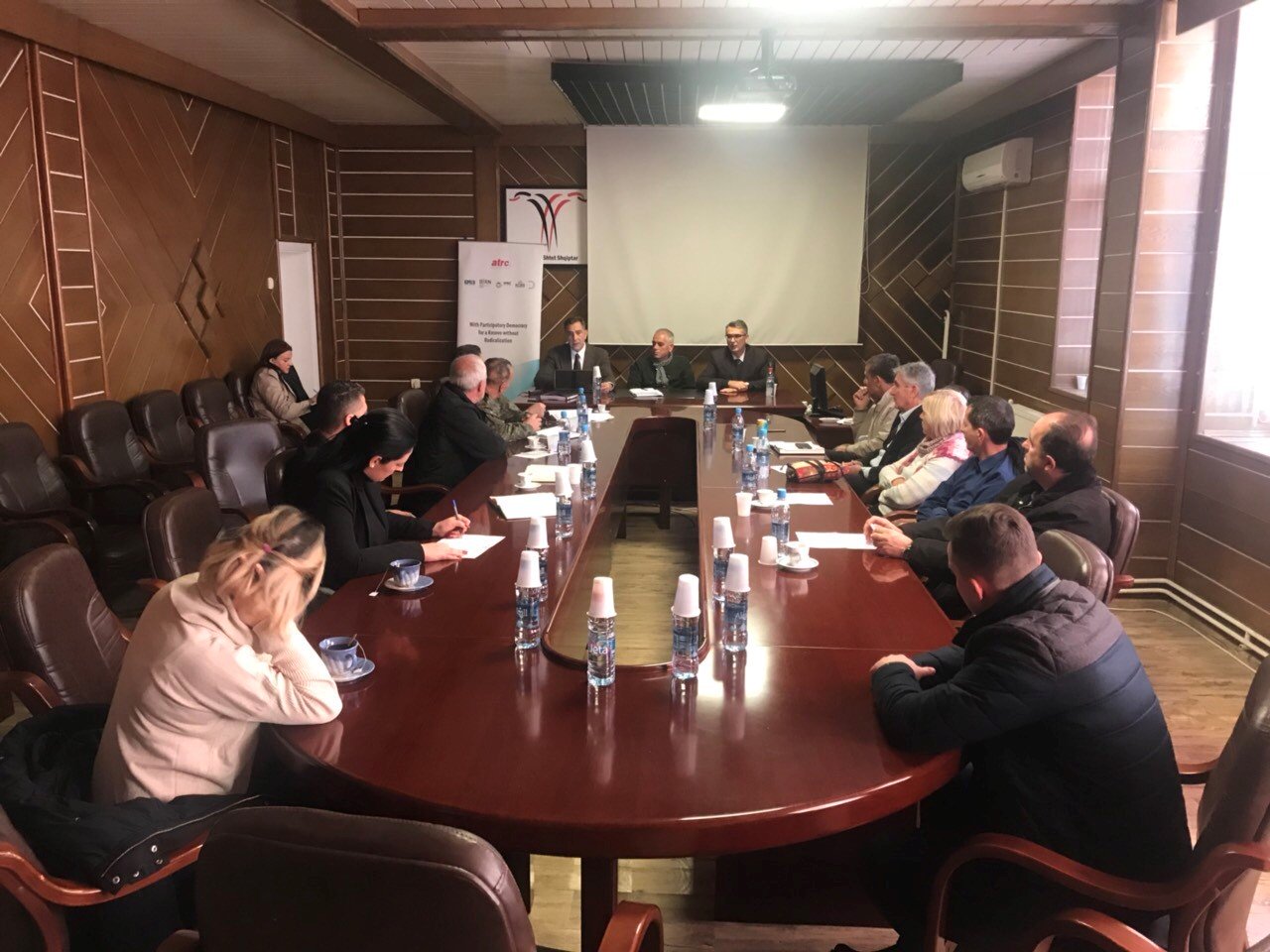
After the opening presentation, by the executive director of SPRC, mr.Xhabir Hamiti, the workshop continued with the presentation of mr.Agim Musliu who gave a history of the recent safety developments intertwined with terrorism that is based on radicalism – especially in the middle east, whilst contextualizing those event with the processes of safety policy developments in Kosovo. As the main factor that might have affected the widening of radicalism in Kosovo was mentioned to be the fragile justice system towards a unknown phenomenon to that date, for the local context and culture, and lacking of an evaluation and assessment system that would provide accurate data and prevent over-rating or under-rating the spreading and involvement of the Kosovan citizens. Whilst, the main presention was dedicated on the early identification factors by underlying the fact that radicalism and torrirsm come from different factors and idiologies thus reducing radicalism on religion might hinder the overall understanding of the problem. Some of the early identification factors that can be seen in radicalized (or in the process of radicalization) of individuals or groups, include: sudden behavioral changes; isolation; not attending social activities; disavowal of social values; open contradictions; isolation into the virtual world or in different interest groups – that all, in the end, lead to use of violent means to oposse contradictions – that as result have human and material casualties. Participants evaluated the presentation as a necessary discussion and complained about the lack structural and coherent programs and action on the early identification, prevention and, especially, reintegration of the families return from participation in forein wars/conflicts. They reemphasized the lack of Psychologists in schools and respective Institutions, such as office of social work – that would facilitate the work of the other professonal in case management and resocialization of the returnees.